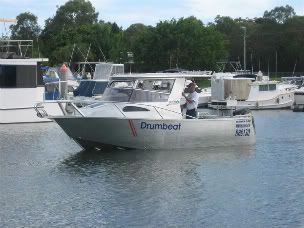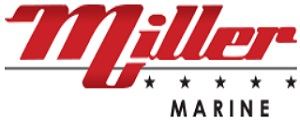Welding Precautions and Modifications
-
AlloyToy
- Donator '08 '09 '10
- Posts: 2433
- Joined: Wed Jan 09, 2008 8:55 am
- 16
- Your location: Mass
- Location: MA & RI
Welding Precautions and Modifications
Guys,
Just thought it would be good since there are so many of us, to list some safety precautions than should be considered before modifying & welding on an aluminum boat........
Obviously, knowing where your fuel tank is located as well as the vent.......
Post em up.........
Just thought it would be good since there are so many of us, to list some safety precautions than should be considered before modifying & welding on an aluminum boat........
Obviously, knowing where your fuel tank is located as well as the vent.......
Post em up.........
-
peterbo3
- Contributor
- Posts: 486
- Joined: Wed Jan 09, 2008 12:59 am
- 16
- Your location: Brisbane, Australia
- Location: Brisbane, Australia
Remove batteries & check what wiring runs near the job. Remove wiring if needed. Clear out any "stuff" from the immediate surrounds.Pulling out seat cushions if in danger is a wise move plus having some old carpet ready to protect the nearby area from splatter or grinding residue. Any more 


 ?
?
Regards,
Pete in Brisbane

Pete in Brisbane

- Jay Perrotta
- Sponsor/Donator
- Posts: 376
- Joined: Sat Jan 05, 2008 4:27 am
- 16
- Your location: Freeport, Maine, USA
- Location: Freeport, Maine, USA
-
Bullshipper
- Posts: 199
- Joined: Tue Jan 08, 2008 11:53 pm
- 16
- Location: Mexico
Can I assume that air should be blown into hatches, and that the hatches should stay uncovered prior to and during all wiring and welding jobs?
What happens if a wire sparks under decks while underway?
Couldn't riser pipes with vents be placed at either ends to force air under decks while under way or while being towed on the trialer, staying high enough to keep 99% of the water out?
What happens if a wire sparks under decks while underway?
Couldn't riser pipes with vents be placed at either ends to force air under decks while under way or while being towed on the trialer, staying high enough to keep 99% of the water out?
- welder
- Site Admin
- Posts: 4668
- Joined: Thu Jan 03, 2008 11:51 pm
- 16
- Location: Whitesboro, Texas
- Contact:
We need 3 things to make fire , fuel, heat and oxygen. Take any one away and it aint gonna happen.
Myself , I would get a bottle of argon or CO2 and purge the void out , now you have removed the Oxygen with an Inert gas, that equalls no fire.
There is always a chance of at least a FLASH around a fuel tank as the fuel can penitrate the material and with the proper heat , BOOM.
Inert gases are our friends.
Myself , I would get a bottle of argon or CO2 and purge the void out , now you have removed the Oxygen with an Inert gas, that equalls no fire.
There is always a chance of at least a FLASH around a fuel tank as the fuel can penitrate the material and with the proper heat , BOOM.
Inert gases are our friends.
Lester,
PacificV2325, Honda BF225
2386
PacificV2325, Honda BF225
2386
-
peterbo3
- Contributor
- Posts: 486
- Joined: Wed Jan 09, 2008 12:59 am
- 16
- Your location: Brisbane, Australia
- Location: Brisbane, Australia
Bullshipper wrote:Can I assume that air should be blown into hatches, and that the hatches should stay uncovered prior to and during all wiring and welding jobs?
What happens if a wire sparks under decks while underway?
Couldn't riser pipes with vents be placed at either ends to force air under decks while under way or while being towed on the trialer, staying high enough to keep 99% of the water out?
BS,
If you need to get fresh air into a space, always pump out the "old" air. Fresh air will rush in & replace what has been removed. It is very hard to pump "new air " into any confined space. There are some places where "new" air must be pumped in ( coal mines for one) but if you are working on a boat with more than one entry point, suck the old stuff out & atmospheric pressure will do the rest.
Regards,
Pete in Brisbane

Pete in Brisbane

-
Chaps
- Donator '09
- Posts: 2246
- Joined: Sun Jan 13, 2008 12:19 am
- 16
- Your location: Seattle, WA
- Location: Seattle, WA
All good stuff!
1987 24' LaConner pilothouse workboat, 225 Suzuki

please view and like: https://www.facebook.com/bottompainting/
please view and like: https://www.facebook.com/bottompainting/
-
Ironwood Boats
- Posts: 31
- Joined: Fri Apr 18, 2008 11:21 am
- 16
- Location: Vancouver BC
- Contact:
Argon purging is very dangerous.
There has been many welders killed buy welding in areas without proper air circulation. While Argon is great to suppress combustion it will also fill a compartment or hull up, displace the oxygen and suffocate you. It does not matter if the area has a 2ft hatch, a 10ft hatch, is 1ft deep x 20ft long or 10ft long x 15ft deep. It only takes 3 breaths of Argon to knock you down. Once you are down you are done.
In my previous life I've had argon purged hulls blow (3/16"the deck plate over 10" lifted up 1/2"). I have never trusted Argon purging since. Could be that there was a gust of wind or the deck flexed. The argon was forced out and pulled air in just as I started to weld.
Once the fuel vapor is out of the hull the next place for it to accumulate is on the deck or any other low area. Put a fan up to clear the vapor away or any excess argon.
The system I use now is to fill the hull up with water and to keep the water overflowing.
Have someone on fire/safety watch.
Find the location of and check the connections on the fuel fill,vent, shut off valve, fuel filter, and engine.
Close the fuel shut off valve.
It is better to have a full tank of fuel then 1/2 or 1/4 full.
Use a gas sniffer. Check the compartment that is being welded as well as the compartments for and aft of it.
If aluminum brightener is used inside a compartment to clean the aluminum, be aware. The chemical reaction generates hydrogen....
.... remember the Hindenburg.
Steam cleaned aluminum can blow. Fuel penetrates the aluminum and the heat from the welding will cause the fuel to boil out of the aluminum.
A CO2 fire extinguisher is good because it does not leave a residue.
If the boat has foam in it you can use an air line to blow out any small fires before they get away.
If there is any chance the foam has soaked up fuel/oil then pass on the job.
Disconnect the electronics for sure and I sometimes I disconnect the batteries.
Watch out for any fiber bat insulations they can absorb oil and go up like a torch.
Cover any glass. Weld spatter will pit the surface of it.
Propane systems. Even if the bottle is remove the sys can still hold enough gas to turn you into a torch.
Never weld with Bic lighter in your pocket. While it may not explode it will turn you into a human torch for 30 seconds.
Weld with cotton clothes on. They will burn they will not stick to you like other materials will when they burn.
Always watch where you weld spatter goes.
Put you ground clamp where it will not do any damage if it arcs. Even clamp it to a scrap of aluminum and then clamp the scrap to the welding job.
That is all I can think of now.....
There has been many welders killed buy welding in areas without proper air circulation. While Argon is great to suppress combustion it will also fill a compartment or hull up, displace the oxygen and suffocate you. It does not matter if the area has a 2ft hatch, a 10ft hatch, is 1ft deep x 20ft long or 10ft long x 15ft deep. It only takes 3 breaths of Argon to knock you down. Once you are down you are done.
In my previous life I've had argon purged hulls blow (3/16"the deck plate over 10" lifted up 1/2"). I have never trusted Argon purging since. Could be that there was a gust of wind or the deck flexed. The argon was forced out and pulled air in just as I started to weld.
Once the fuel vapor is out of the hull the next place for it to accumulate is on the deck or any other low area. Put a fan up to clear the vapor away or any excess argon.
The system I use now is to fill the hull up with water and to keep the water overflowing.
Have someone on fire/safety watch.
Find the location of and check the connections on the fuel fill,vent, shut off valve, fuel filter, and engine.
Close the fuel shut off valve.
It is better to have a full tank of fuel then 1/2 or 1/4 full.
Use a gas sniffer. Check the compartment that is being welded as well as the compartments for and aft of it.
If aluminum brightener is used inside a compartment to clean the aluminum, be aware. The chemical reaction generates hydrogen....
.... remember the Hindenburg.
Steam cleaned aluminum can blow. Fuel penetrates the aluminum and the heat from the welding will cause the fuel to boil out of the aluminum.
A CO2 fire extinguisher is good because it does not leave a residue.
If the boat has foam in it you can use an air line to blow out any small fires before they get away.
If there is any chance the foam has soaked up fuel/oil then pass on the job.
Disconnect the electronics for sure and I sometimes I disconnect the batteries.
Watch out for any fiber bat insulations they can absorb oil and go up like a torch.
Cover any glass. Weld spatter will pit the surface of it.
Propane systems. Even if the bottle is remove the sys can still hold enough gas to turn you into a torch.
Never weld with Bic lighter in your pocket. While it may not explode it will turn you into a human torch for 30 seconds.
Weld with cotton clothes on. They will burn they will not stick to you like other materials will when they burn.
Always watch where you weld spatter goes.
Put you ground clamp where it will not do any damage if it arcs. Even clamp it to a scrap of aluminum and then clamp the scrap to the welding job.
That is all I can think of now.....
- Sculpin
- Posts: 905
- Joined: Tue Apr 22, 2008 10:10 pm
- 16
- Location: Vancouver Island(The Rock), British Columbia
Very good advice Ironwood Boats and welder. I knew of a local welder where I live that was working on a herring skiff and didn't realize that one of the seats was actually a fuel cell or was told it was flushed etc. (this is second hand info) :shock: . He was working on something connected to the seat and got blown right out of the boat with only a few minor injuries. Very lucky.
